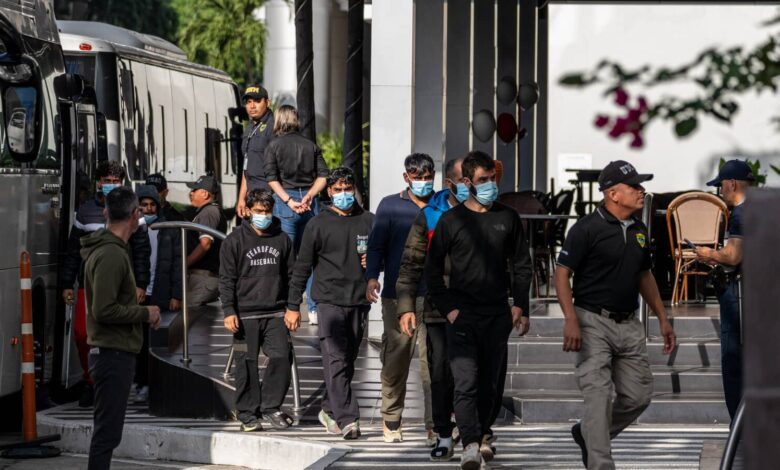
In a delicate and testing situation, Panama is hosting up to 300 nationals from diverse countries, among them Iran, India, Nepal, Sri Lanka, Pakistan, Afghanistan, and China. They were deported from the United States by the then-president Donald Trump’s administration.
They are being sheltered in a hotel where they are receiving medical attention and feeding as part of a migration agreement between the US and Panama, said Panama’s Security Minister Frank Abrego. But these migrants are prohibited from exiting the hotel while international authorities make arrangements to repatriate them.
An urgent matter arose, since more than 40% of such migrants refuse to go back voluntarily to their respective countries. Many have even been forced to inscribe touching pleas on their windows in hotel rooms, requesting “help” and stating, “We are not safe in our country.”
The United States has used Panama as a transit destination for deportees because of difficulties in directly returning people to particular countries. Costa Rica is also expected to take a similar flight of third-country deportees in the next few days.
Minister Abrego explained that 171 of the 299 deportees have agreed to be repatriated to their homelands with the help of the International Organization for Migration and the UN Refugee Agency. The other 128 migrants are still being processed, with plans to find alternative destinations in third countries. Already, one Irish deportee has returned home, while those who resist repatriation will be temporarily accommodated in a center in the isolated Darien province.
Panama has committed to serving as a “bridge” for deportees, with the United States paying all operational expenses. The agreement was made earlier this month after a visit by US Secretary of State Marco Rubio. The situation has been further exacerbated by political pressure on Panamanian President Jose Raul Mulino, triggered by Trump’s threats over control of the Panama Canal.
The Panamanian Ombudsman’s Office is also anticipated to issue further reports on the deportees’ status, shedding more light on the problems and possible solutions for the affected.



